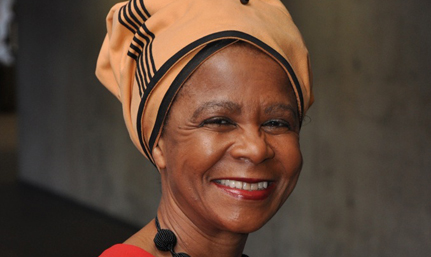Latest News Archive
Please select Category, Year, and then Month to display items
![]()
The composition of the Council of the University of the Free State is stipulated in the UFS Statute, as promulgated in the Government Gazette of 26 January 2018. The terms of office of the President of Convocation, Prof Johan Grobbelaar, Christo Dippenaar, Henry Madlala (Qwaqwa Campus) expire on 31 October 2018. Convocation has to appoint three representatives in their place, one of which has to be the President of Convocation and another should be from the Qwaqwa Campus. In terms of the Statute, both Dippenaar and Madlala are eligible for re-election.
Written nominations for the election of three representatives of the Convocation for a period of four years, are hereby requested.
The Convocation comprises of all permanent academic staff from lecturer to professor, all permanent staff other than academic staff from Deputy Director to Rector and Vice-Chancellor by virtue of their respective offices and all students (current and former) who obtained a qualification at the university.
Each nomination shall be signed by five members of Convocation and shall contain the written acceptance of the nomination by the nominee under his or her signature, as well as an abridged CV (±2pages). These must reach Dawid Kriel by 12:00 on Monday 12 November 2018. If more than one person per each of the three categories is nominated, elections will be held on or before Friday 16 November 2018. You will be notified of the final date for elections in due course. Please submit your nomination via:
• E-mail: dawid@ufs.ac.za
• Fax: 086 643 1665
• Post: Dawid Kriel University of the Free State: Institutional Advancement PO Box 339 Bloemfontein 9300
• Hand delivered at: Dawid Kriel, Room 26, 1st Floor, Wekkie Saayman Building, Bloemfontein Campus
For enquiries, please contact Claudine Taylor at TaylorCL@ufs.ac.za or +27 51 401 2097.
Click here for the nominations form.
Inaugural lecture challenges leaders in higher education
2012-10-30
|

|
Dr Mamphela Ramphele
Photo: Stephen Collett
29 October 2012 |
Lecture (Pdf format)
According to international statistics, South Africa’s school performance is rated 140th out of 144 countries. South Africa is also ranked 143rd out of 144 countries when it comes to the quality of mathematics and science. About 600 000 South African graduates are unemployed and about 500 000 learners are failed by our current education system.
Dr Mamphela Ramphele brought these shocking statistics to the light at the inaugural lecture of the Annual Prestige Lecture at the Faculty of Education on Thursday 25 October 2012 at the University of the Free State (UFS).
This lecture will henceforth be known as the Mamphela Ramphele Prestige Lecture.
Dr Ramphelefocused her lecture on ‘Educating the 21st century citizen’.
“One of the defining characteristics of the 21st century is the vast number of choices that confront us every day at a personal, professional and political level.”
She asked if 21st century South Africans are equipped with the skills to make the choices that confront them daily.
“The failure to transform our apartheid education into one characterized by equity and excellence, is producing graduates who lack self-confidence.”
Dr Ramphele said that in South Africa about 1/6th of government expenditure goes to education, but the outcomes remain shocking.
For Dr Ramphele the answer lies in creating platforms for open conversation about South Africa’s painful past and the agenda for radical socio-economic restructuring should include the fundamental transformation of education.
She praised the UFS, under its current inspirational leadership, for its role as change agents through the education.
Prof. Rita Niemann, senior professor at the Faculty said the Annual Mamphela Ramphele lecture is to further expand and celebrate education in South Africa.
“Dr Ramphela has given us so much food for thought by challenging leaders in higher education to speak out about the questionable state of education in South Africa and to become engaged in the ‘revolution of the spirit’ in order to deliver citizens who own and shape the country.”